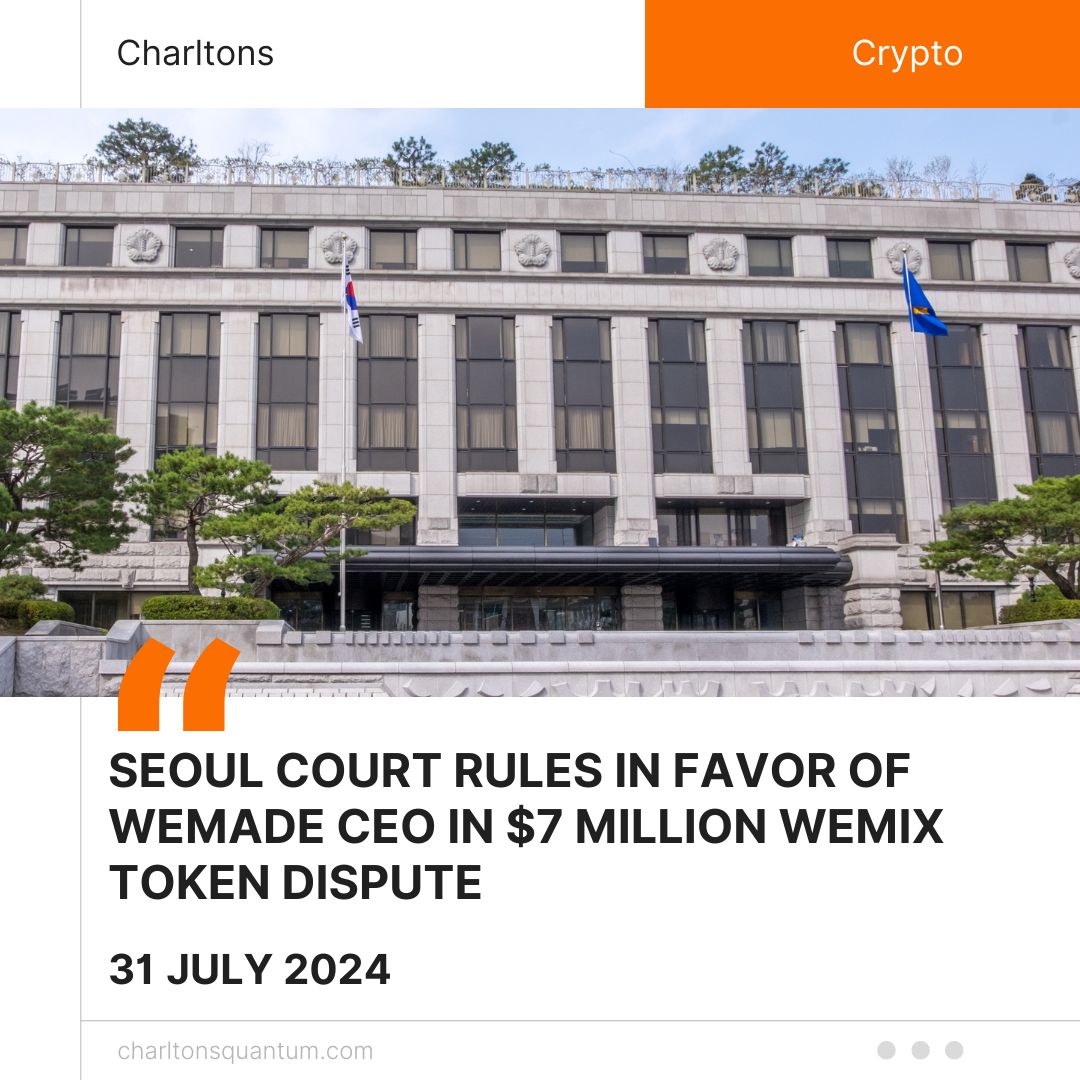
On 30 July 2024, the Seoul Central District Court made a landmark ruling in favor of Wemade CEO Park Kwan-ho, ordering the now-defunct virtual asset exchange GDAC to return 7.8 million WEMIX tokens, valued at approximately $7.31 million, to Park. This decision brings to light critical issues surrounding exchange operations, regulatory compliance, and investor protection in the unpredictable world of digital assets.
The court’s decision, which supports Park’s application for a temporary injunction filed on 29 July 2024, requires GDAC to comply within 30 days or face a daily fine of 3 million won after the deadline. The ruling dismisses GDAC’s allegations against Park of market manipulation and money laundering, raising questions about the exchange’s ability to maintain a 100% reserve ratio, contradicting its previous statements.
GDAC’s troubles began after a hacker attack in April 2022 resulted in losses of about 20 billion won ($14.48 million), which may have compromised the exchange’s ability to fully recover and maintain adequate reserves. Adding to the controversy, GDAC ceased operations on 16 July 2024, just days before the implementation of the ‘Virtual Asset User Protection Act,’ leaving Park unable to withdraw his remaining WEMIX tokens, now valued at about 10.1 billion won.
What does this mean for the broader cryptocurrency industry in South Korea? The court’s ruling could set a precedent for how digital asset disputes are resolved, emphasizing the need for exchanges to uphold high standards of transparency and integrity. This decision may prompt other exchanges to re-evaluate their practices, ensuring they can meet their obligations to customers, especially during operational crises. The spotlight on GDAC’s failure to allow full withdrawals during its closure raises significant concerns about the actual holdings of customer assets.
The South Korean government has been progressively tightening its regulatory framework to enhance investor protection and market stability. The implementation of the ‘Virtual Asset User Protection Act’ is a testament to these efforts. By enforcing stricter compliance measures and ensuring exchanges maintain adequate reserves and transparency, the government aims to foster a secure and trustworthy environment for cryptocurrency trading. This ruling aligns perfectly with the government’s broader efforts, emphasizing the importance of regulatory oversight in safeguarding investor interests.
In a related development, legal proceedings against Terra co-founder Daniel Shin are also unfolding. During the first hearing at the Seoul Southern District Court, Shin’s lawyers requested more time to prepare for his criminal defense. Shin, who did not personally attend the hearing, has assembled a team of 30 lawyers, including former judges, prosecutors, and experts in digital asset-related and capital markets law cases.
The court granted this request, setting 28 August 2024 as the date for a second hearing. This decision has disappointed prosecutors, who are concerned about continuous delays. The judge stated that they will review the opinions of the lawyers and reconsider the trial preparation date to decide on the opportunity for defense and the order of interrogation.
As the legal landscape for digital assets continues to evolve, these cases highlight the critical role of regulatory bodies and judicial systems in shaping the future of the cryptocurrency industry in South Korea. Investors and market participants must remain vigilant, as regulatory clarity and enforcement will undoubtedly play a significant role in the stability and growth of the digital asset market. The court’s decision not only brings justice to Park Kwan-ho but also sends a strong message about the importance of maintaining integrity and trust in the rapidly evolving world of digital assets.





